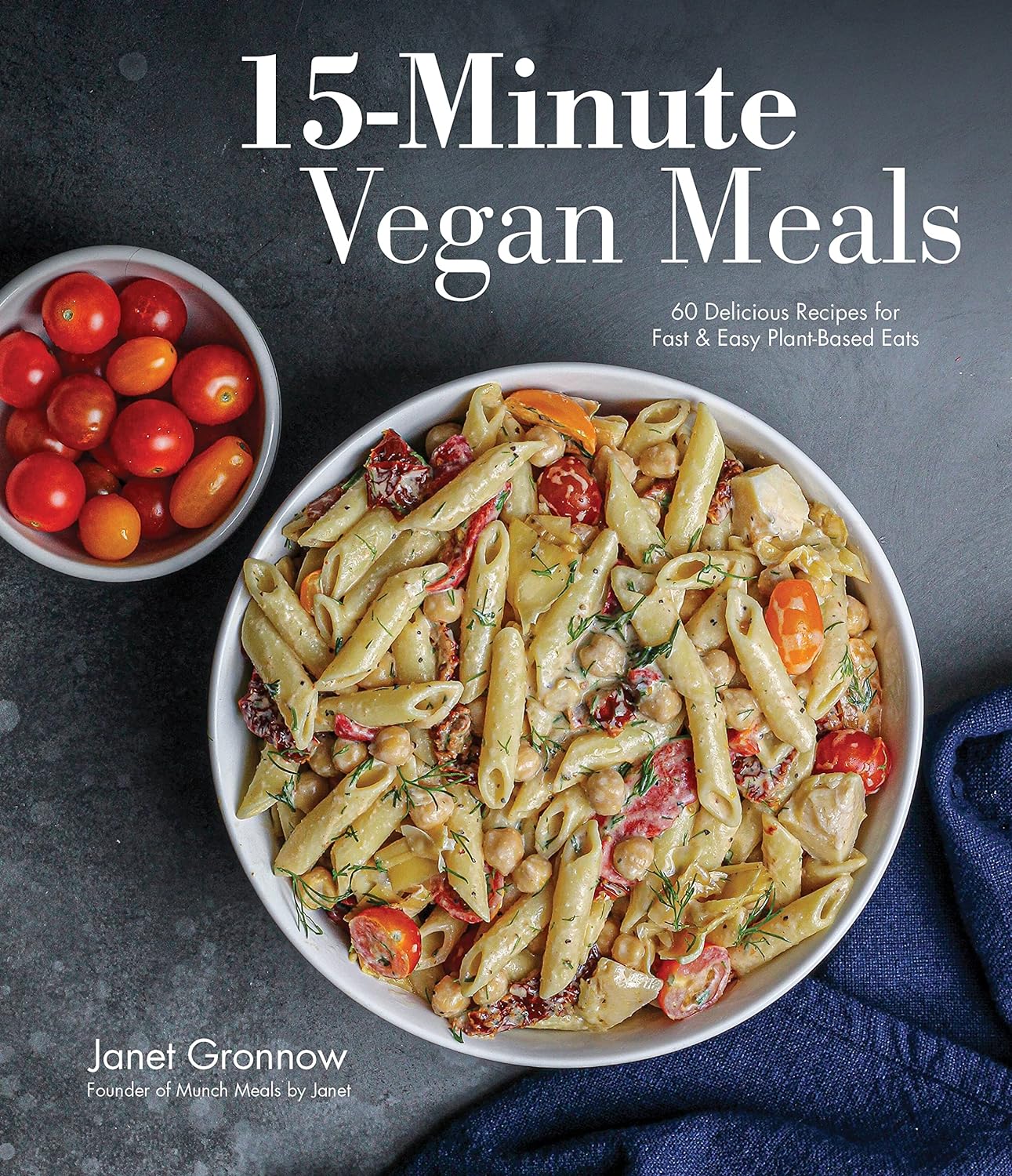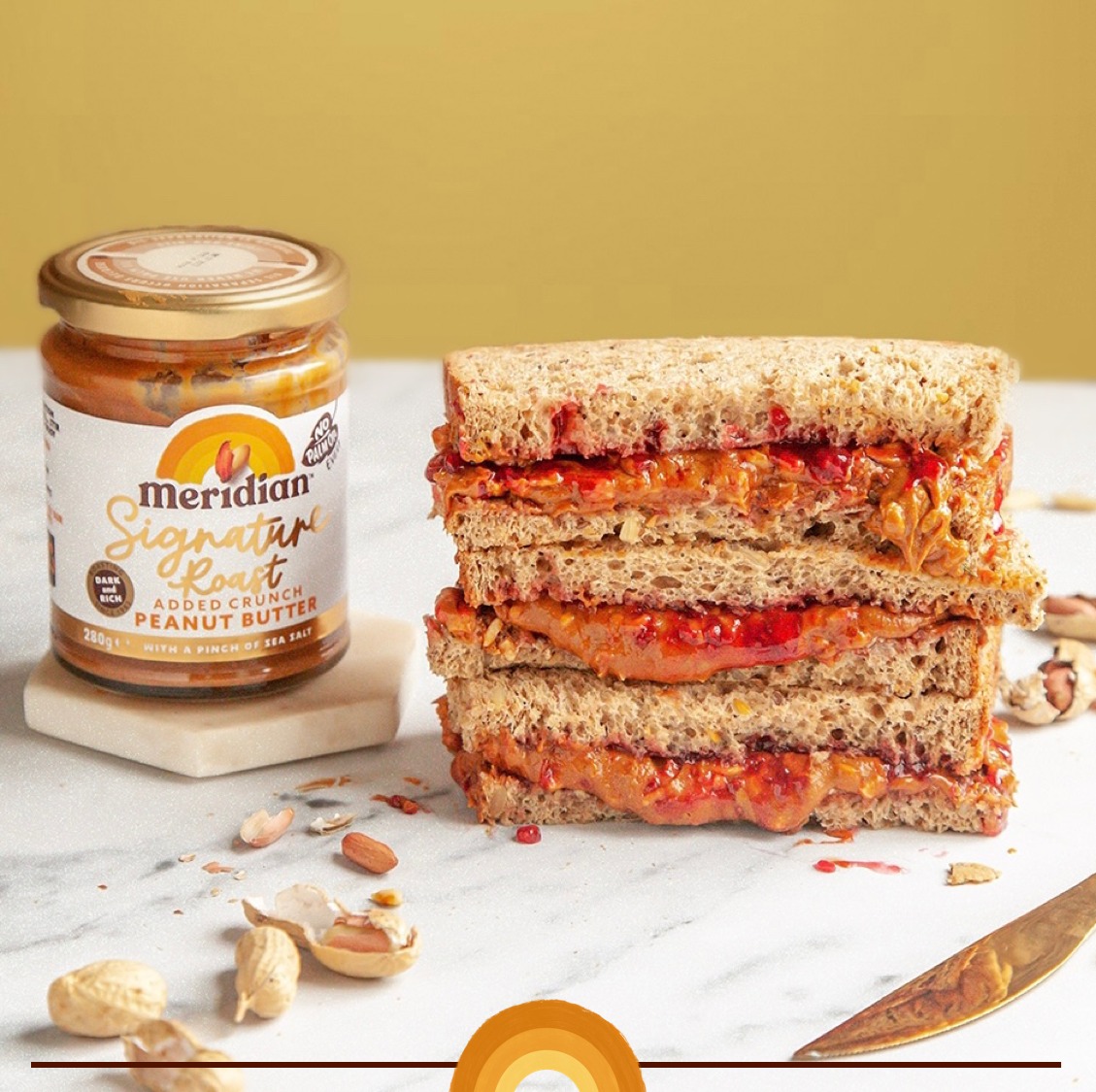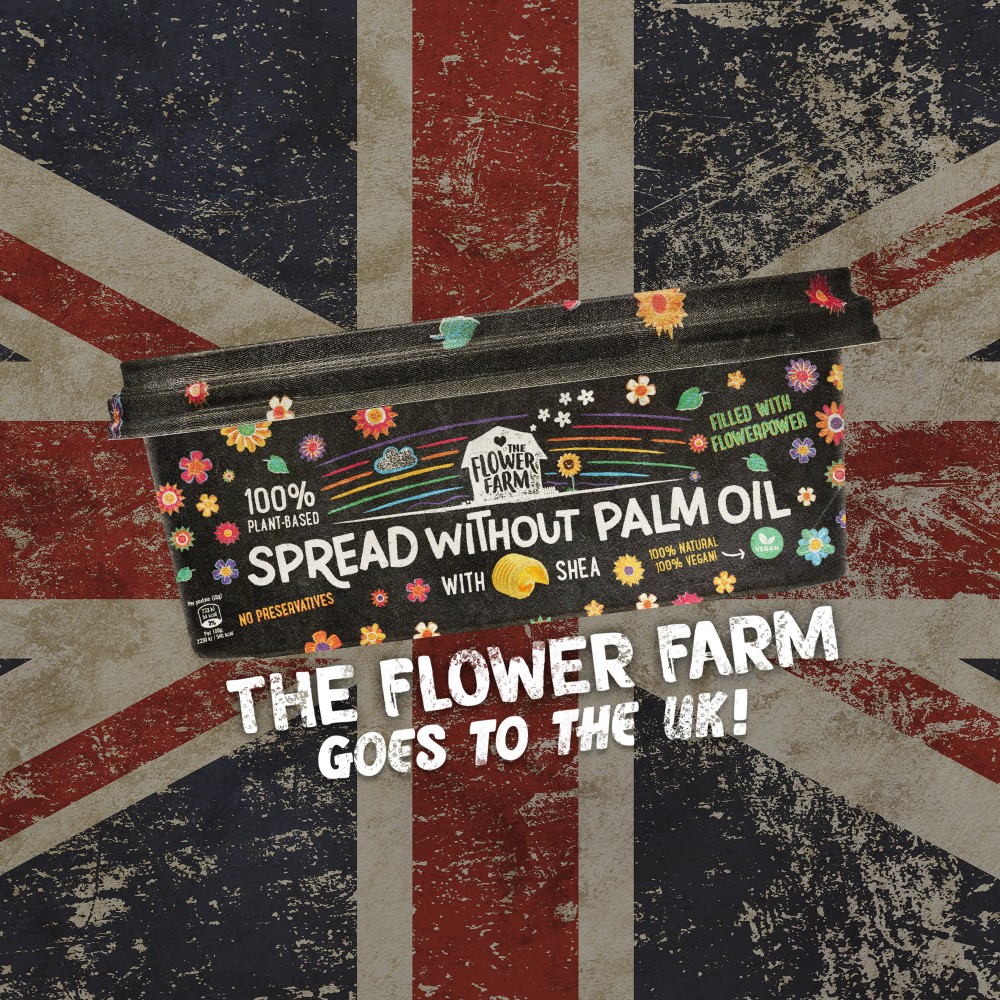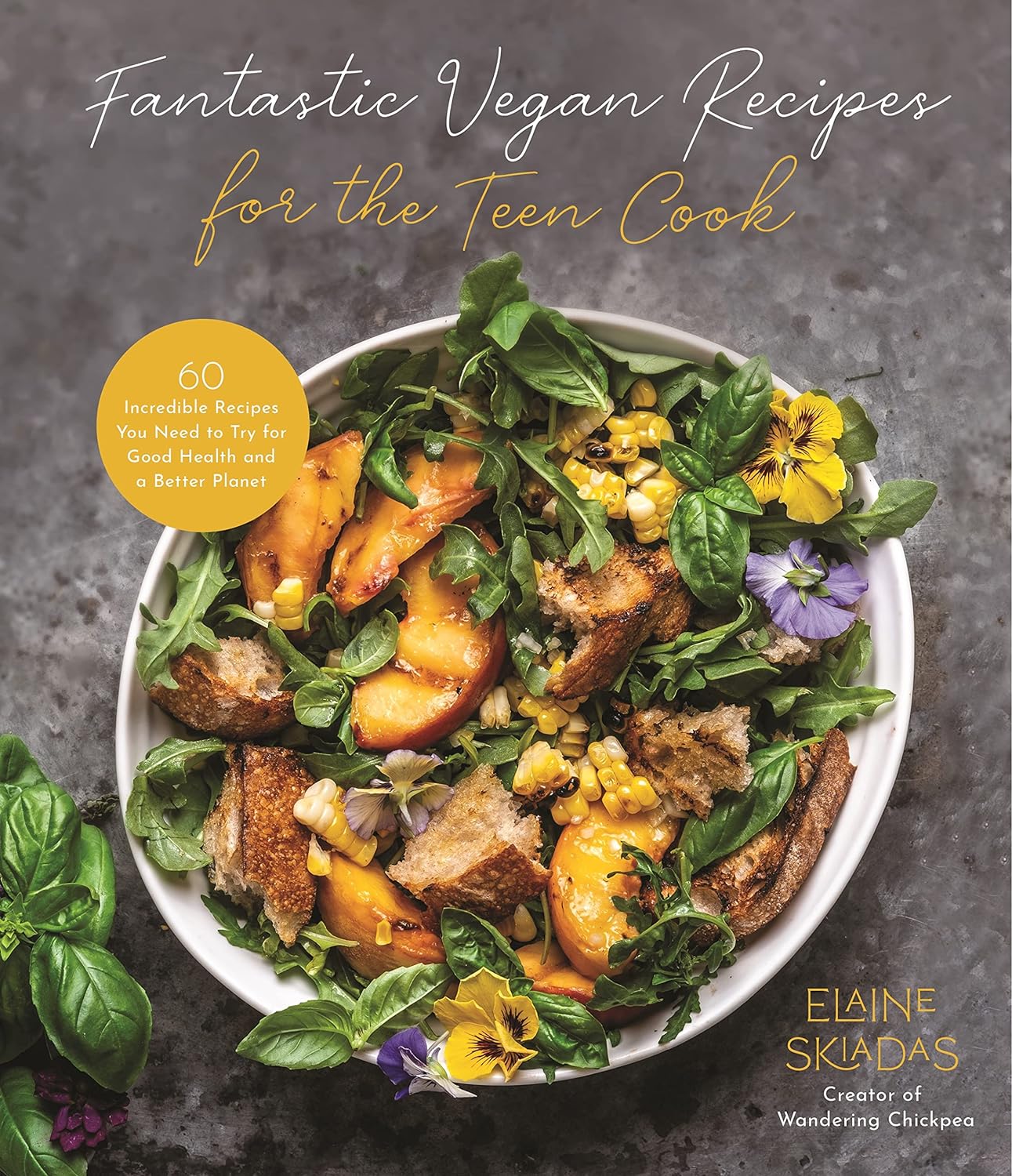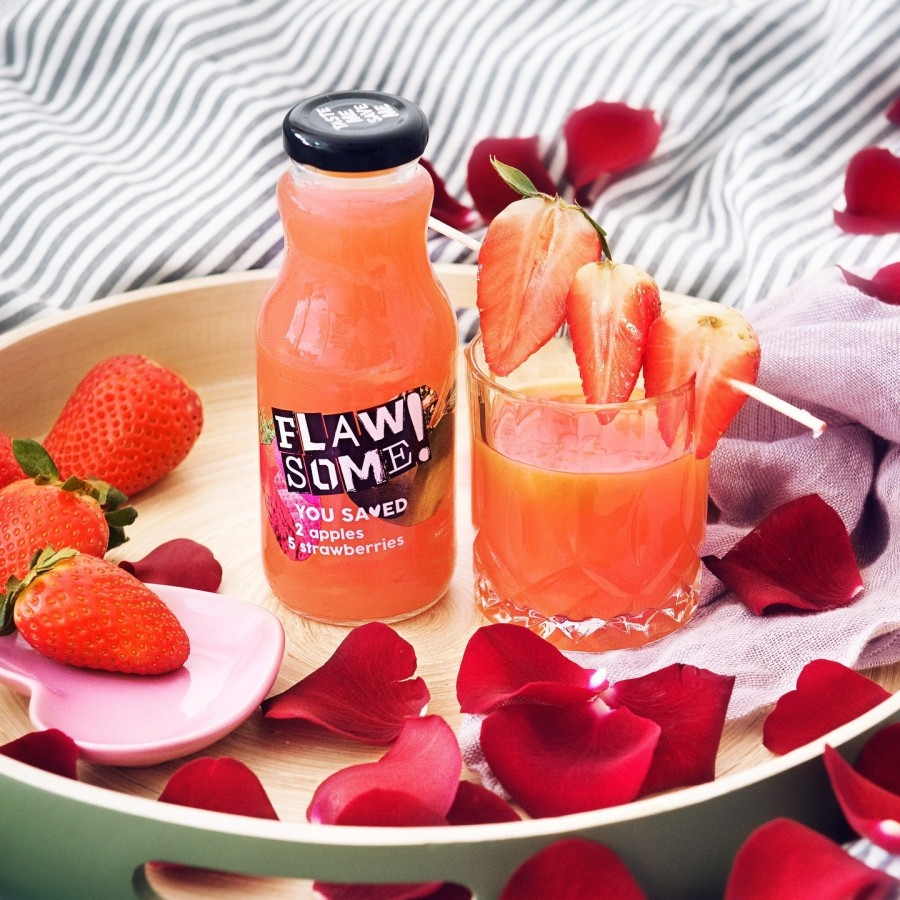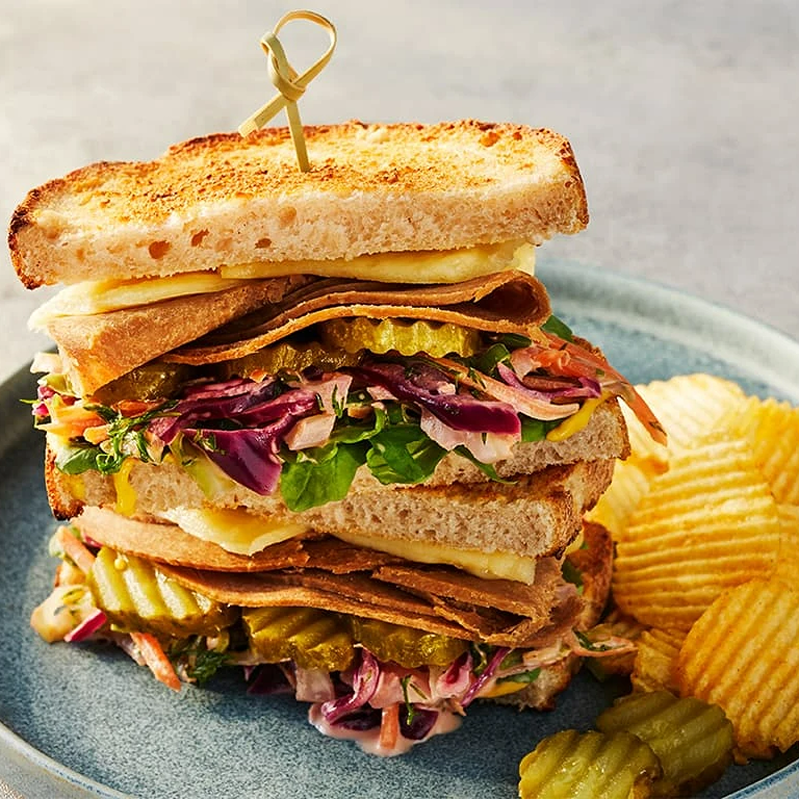
Rather than always buy ready-made sandwiches packed in plastic and sold with animal ingredients and palm oil, just buy a reusable sandwich box and make your own. Choose good bread from the indie baker, and fill with palm-oil-free vegan butter then add your choice of fillings.
Use plant-based cheese for this Vegan Reuben sandwich. It’s a New York Jewish recipe with vegan beef slices, rocket, mustard, grated carrot and gherkins.
Read up on food safety for people & pets. Never feed stale, mouldy or crusty bread to garden birds or wildfowl, as it can choke or harm. Nor buttered leftovers, as fat smears on feathers, affecting waterproofing/insulation.
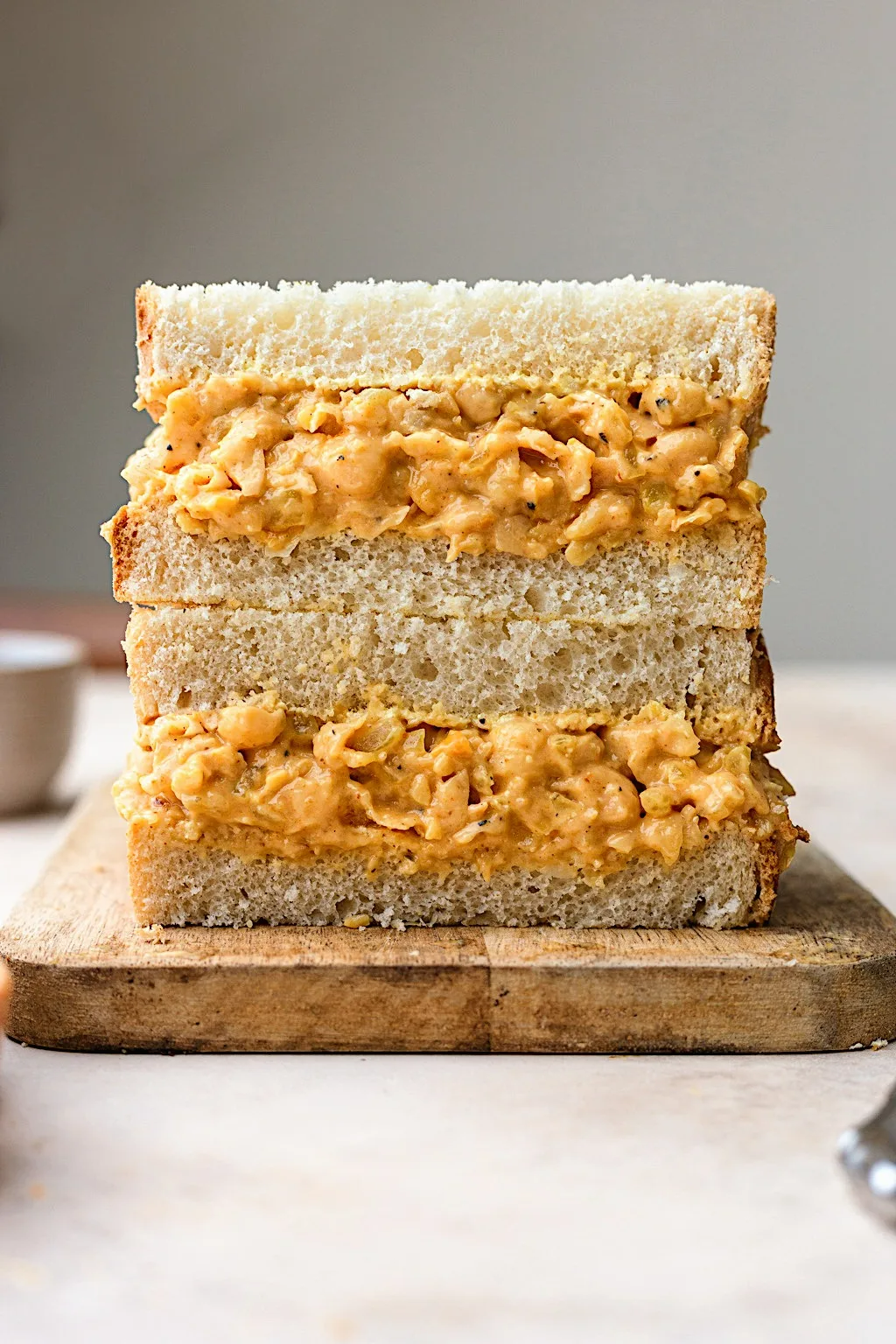
We’ve had the Coronation now. And whatever your thoughts on the Monarchy, there’s always time for this coronation chickpea sandwich (Cupful of Kale). This is a plant-based version of the sandwich named in honour of the coronation of Queen Elizabeth II back in the 1950s. Chickpeas are super-tasty and packed with protein and calcium.
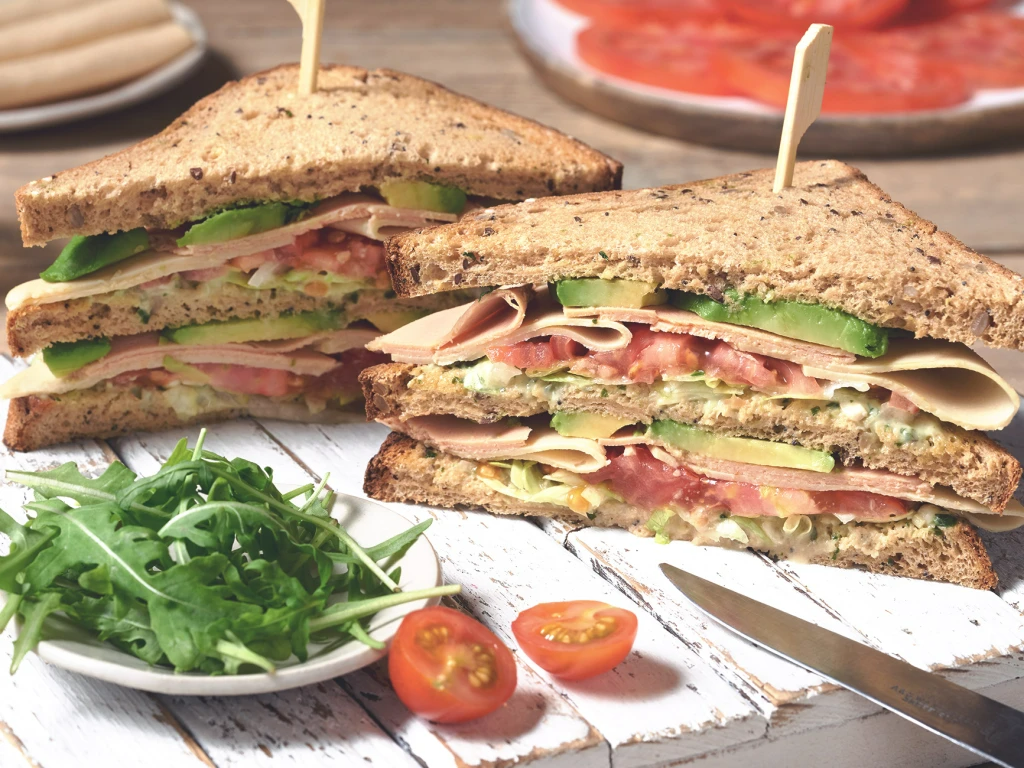
If shopping at supermarkets, Quorn makes good vegan slices that are easy to turn into a nice snack. Try recipes for a vegan ham sandwich, a club sandwich or a vegan Caesar salad sandwich.
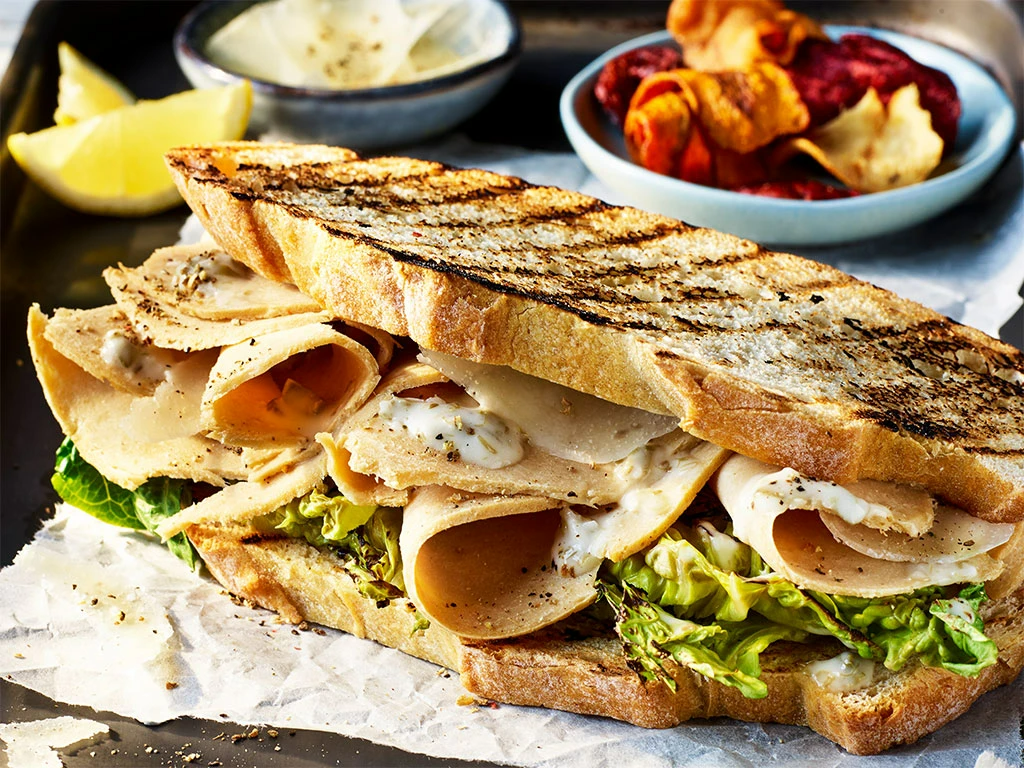
how to pack sandwiches (without clingfilm)
![]()
This reusable silicone freezer bag can also be used to store sandwichs. Silicone does use fossil fuels (with sand) but it’s food-safe, lasts years, easy to recycle and doesn’t break down into millions of microplastics. A one-time purchase, this bag has an airtight and leakproof seal, to ensure food stays fresh for longer, with no spillages. The pouch can also stand up, so it won’t leak liquid fillings.
The bags are also good to reduce bread waste. Just freeze your loaf and pop extra slices in the bag. Then just take out a slice at a time, to pop direct in the toaster. Incredibly versatile, this bag is heat-resistant up to 230 degrees and freezer safe up to minus 40 degrees. Also microwave and dishwasher-safe (remove slider before you put in microwave). Remove odours or stains by soaking in a little baking soda and white vinegar.
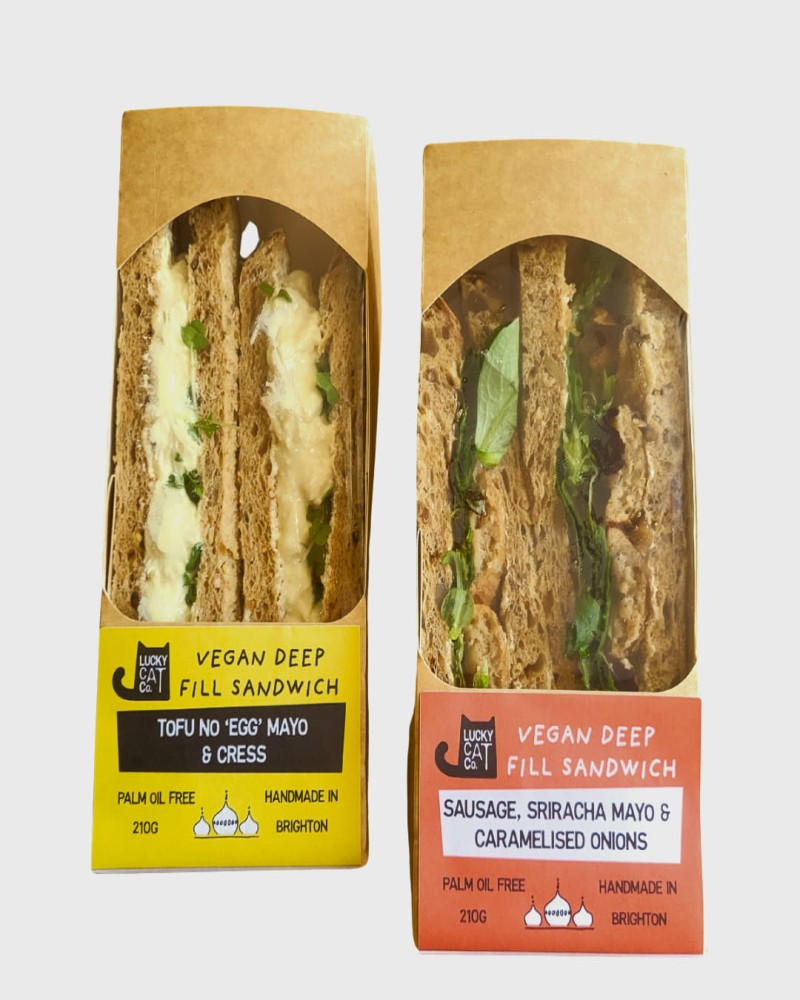
If you run a small sandwich shop (or make sandwiches for others to sell), there are plenty of alternatives to clingfilm. Brighton’s Lucky Cat Co sells sandwiches to Kindly vegan supermarket in plastic-free packaging. Be careful as some ‘compostable packaging’ is from flammable eucalyptus trees (Spain and Portugal are banning new plantations, due to wildfires).
Most kerbside and supermarket recyclers won’t take clingfilm, a very thin plastic that often falls apart and is made from LDPE (low-density polyethylene) taht doesn’t stick well and was invented by accident almost 100 years ago, with a man trying to remove something from a lab vial. It’s made by melting tiny plastic pellets (nurdles) that often drop on the factory floor and end up in the sea (it’s estimated 50 million nurdles end up in oceans each year, and look like fish eggs, so get eaten (and you eat them too, if you eat fish).
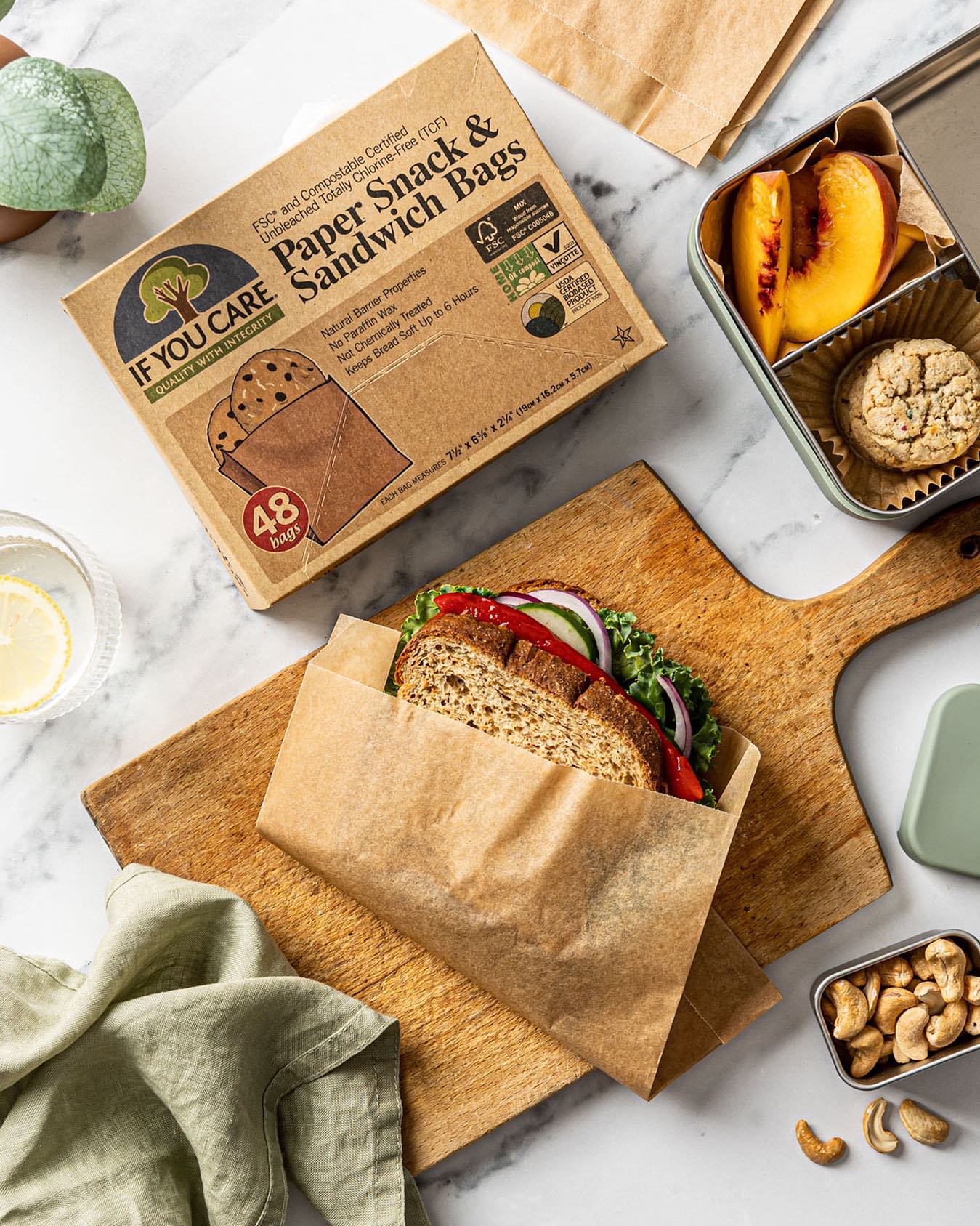
If You Care makes greaseproof sandwich bags (also good for nuts, crisps and baguettes) and unbleached unwaxed paper (free from chlorine in cardboard packs – the latter is pre-cut and also be used to warm up pizza). Toastabags offer paper sandwich/snack bags (and compostable clingfilm), as does Ecoleaf.
a ‘clip & seal’ stainless steel lunchbox
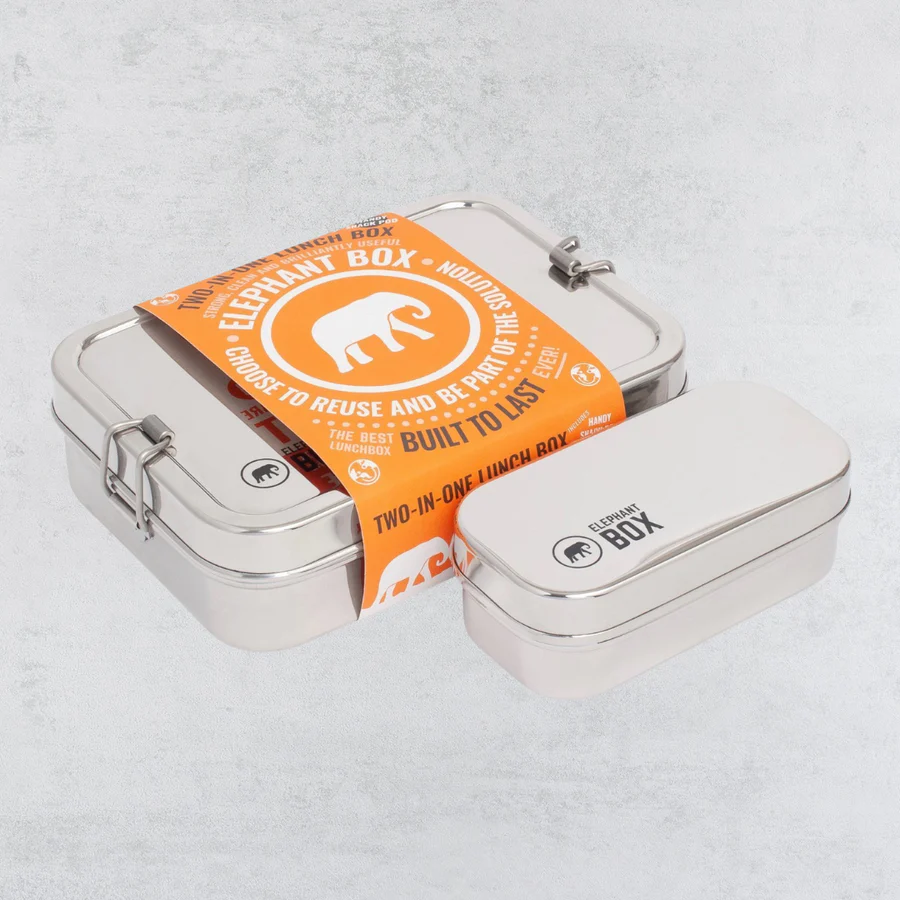
This ‘clip & seal’ stainless steel lunchbox is the ideal alternative to warped plastic lunchboxes, which support the oil industry and can taint your food. Also sold alongside a two-in-one lunchbox that has a handy compartment to keep your dressing separate from your salad. Made with a strong silicone seal, the innovative clipping system means that this lunchbox should last forever. The box is made from quality 18/8 stainless steel and sold with a 15-year guarantee. Strong and durable, the lunchbox is resistant to rust and won’t stain or carry odours (unlike plastic). It’s also leakproof. Dishwasher and oven-safe. If using steel straws, avoid use for children, dexterity issues or on the move, as they don’t flex.
The stainless steel flask has an wide mouth (avoid for hot liquids).It holds just over 1-litre and lasts forever, with no paint or plastic in sight. Made from premium 304 grade stainless steel, it carries a 15-year warranty and has a handy carry loop and is leakproof.
why won’t shops stock vegan sandwiches?

Bettafish sandwiches are sold in Aldi in Germany, Denmark and Switzerland. So why not here? Considering that many other sandwiches go to waste as more people eat plant-based, it’s a mystery why supermarkets especially don’t stock more vegan options for people who want them. Nearly all the major supermarkets stock one or less vegan options, and even those tend to have palm oil (which most vegans won’t eat).
Ready-made sandwiches are not ideal. But if you’re in a fix and you’re hungry for some ‘proper food’ (over a bag of crisps) then as supermarkets have almost obliterated local delis and sandwich bars, they have responsibility to add least offer something suitable.
M & S offer a few good choices, but too expensive for most people. Their ‘no-salt beef sandwich’ (a take on the Reuben) is delicious but extremely expensive for what it is. And although Costa has unveiled a huge range of new vegan sandwiches, it does not say if it’s removed palm oil (the older items contain it). Sainsbury’s offers a good VLT sandwich (made with La Vie bacon) and Aldi offers a good no-prawn sandwich, but they are not sold in all branches.

